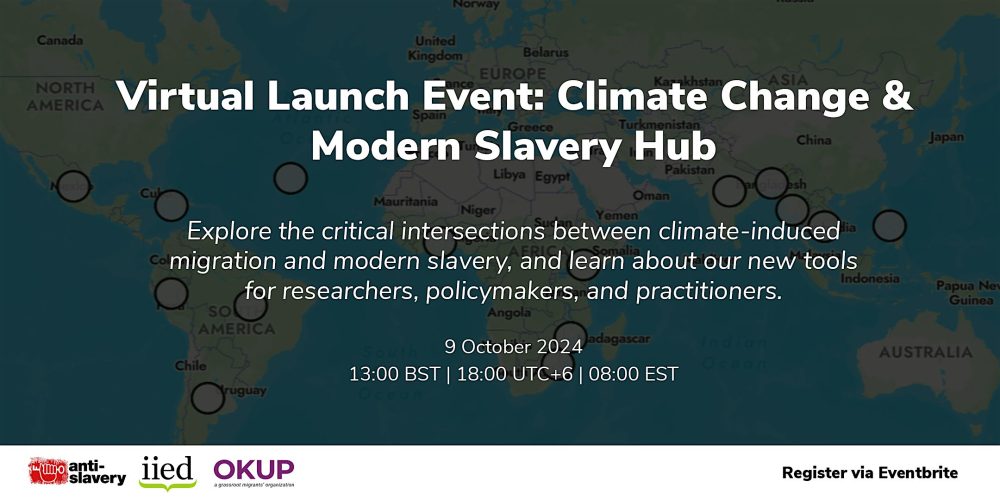In a pivotal move to tackle the intersection of climate change, migration, and modern slavery, the Climate Change & Modern Slavery Hub was launched, co-developed by the Anti-Slavery International, International Institute for Environment and Development (IIED) and Ovibashi Karmi Unnayan Program (OKUP). This collaborative initiative aims to close significant knowledge gaps, which have historically hindered effective policies to protect vulnerable populations affected by climate change.
Bangladesh, being one of the nations most vulnerable to climate change, was prominently highlighted at the event. Shakirul Islam, Chairperson of OKUP, delivered a compelling speech focusing on the impacts of climate-induced disasters on migration and the increasing risk of forced labor and modern slavery in affected communities.
Shakirul Islam described the ongoing climate crises in Bangladesh, where floods, cyclones, rising temperatures, and salinity are devastating lives and livelihoods. “Currently, we’re experiencing a devastating flood due to record rainfall, affecting nearly 70,000 people and destroying crops on 92,000 hectares of land. Unfortunately, despite the emergency relief, there’s no sustainable, long-term support for these affected communities,” he noted.
The impacts are severe: rising debt traps and forced migration are pushing vulnerable populations into exploitation. He pointed out that 70% of households in the Sundarbans region have at least one family member who has migrated, many forced to enter informal and precarious labor, with no legal protections in place. “This lack of protection leads to forced labor, exploitation, and restricted movement for many, especially those migrating internationally,” he explained.
Key features of the Climate Change & Modern Slavery Hub:
- A comprehensive knowledge base connecting climate change, migration, and modern slavery.
- An interactive map to visualize affected areas and migration patterns.
- Resources tailored for policymakers, researchers, and practitioners to craft effective interventions.
- Identification of gaps in understanding and areas that require further research.
- Advocacy for integrating modern slavery concerns into climate action plans.
The Need for Informed Action
The new Hub, which provides an interactive map, research resources, and policy guidelines, is designed to bridge the knowledge gap around these intersections. It will support governments, NGOs, and other stakeholders in formulating strategies that address both the environmental and human rights dimensions of climate change. Importantly, the Hub also highlights the gaps in current understanding and areas requiring further research.


